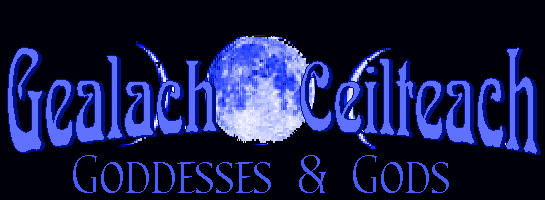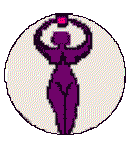


 Wiccans view the universe as alive. Everything in it - animal, vegetable, mineral - has a spirit, or soul. Likewise, everything in the universe has both masculine and feminine properties. Everything in the universe is connected to every other thing. This is called Universal Energy. When we pray we are communing with the Universal Energy. Praying for Wiccans is essentially the same as praying for Christians, or any other religion that utilizes a deity figure. Only the methods and names used differ.
Wiccans view the universe as alive. Everything in it - animal, vegetable, mineral - has a spirit, or soul. Likewise, everything in the universe has both masculine and feminine properties. Everything in the universe is connected to every other thing. This is called Universal Energy. When we pray we are communing with the Universal Energy. Praying for Wiccans is essentially the same as praying for Christians, or any other religion that utilizes a deity figure. Only the methods and names used differ.
The Universal Energy is completely neutral. You get out of it what you put into it. Therefore, it may be positive or negative, masculine or feminine, depending on what type of energy you desire to connect with. You connect with the Universal Energy, and form it to your needs, by visulization. Another name for Universal Energy is Deity, or God or Goddess. This may sound a little sanitized and scientific when I'm really talking about religion, which can become very emotional, but to understand the principles behind prayer as we believe them to be, it is necessary. Once connection with Deity is achieved, "science" goes out the window in favor of raw emotional feeling.
In Wicca, the Universal Energy is visualized in the form of a duality, feminine and masculine, goddess and god. What form or aspect this masculine and feminine duality takes depends on the culture in which one is raised or the mythos in which one is interested. Therefore, it is possible to have 2 or 3 or more people or groups who call themselves "Wiccans" even though they may invoke the names and aspects of different gods and goddesses, be they Greek, Norse, Celtic, or what-have-you. Also, within that cultural mythos there may be further derivations. One Greek Wiccan group may invoke the name of Diana as their goddess aspect while another may choose Aphrodite or Hecate. Also, a singular group may invoke one goddess and god during the full moon, a different goddess and god during the new moon, and yet another goddess and god during the seasonal Sabbat celebrations. It all depends on what you want to achieve and how you want to achieve it.
Wiccans work with a goddess and a god. I say work with, not worship. Wiccans take an active part in their lifepath, choosing the road they travel rather than sitting back and letting some higher being do the driving. In Wicca, communion with Deity is not reliant on a 3rd party. You are your own priestess.
Cernunnos? That sounds Greek. Well, yes, it is. Unfortunately, it is the only surviving name for the ancient Celtic father-god. History has seen fit to erase his name from record, possibly by invading cultures as they sought to supplant the Old Religion with their newer one. That is not to say that there are no Celtic gods at all. There is Dagda, who was a father figure and chief of the Tuatha de Dannan (The Children or People of Danu) and there is of course Lugh, who lends his name to the August 1st Sabbat of Lughnasadh, and countless others. But they do not have the same all-encompassing aspect as the mother-goddess figure of Danu. So, we borrow Cernunnos's name, the Horned One of the Wilderness, and call him our own. Cernunnos is well-known among Wiccan circles, and especially used by the eclectic Wicce.
Also mentioned by the Celtic Moon are Brighid (Brid) and Badb in accompaniment with Danu as the Maiden, Mother, and Crone of our Full Moon Rite, and the Morrigan triumvirate of Macha, Neman, and Badb again as a triple-crone dark-goddess aspect for our Dark Moon Rite. Then there are the Sabbats. While most of our Sabbats invoke the Lord and Lady without attributing names to them, there are a couple Sabbats with named deities central to the celebration. That is Imbolc, or Imbolg (February 2nd, also known as Candlemas) which is the Feast of Brighid, and of course Lughnasadh (August 1st), the first harvest, is Lugh's day.
There are other spirits called on during the creation of the Circle, but these are less complicated beings and not generally considered Gods and Goddesses.